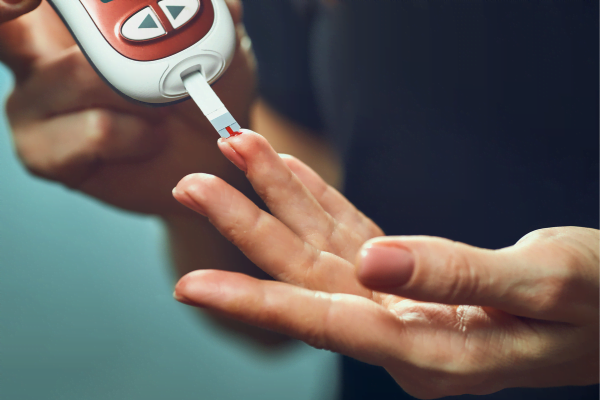3 P’s of Diabetes: Major Signs of High Blood Sugar Levels
Diabetes is a chronic metabolic condition defined by high blood sugar levels. Its treatment includes insulin shots and oral medications to improve glycemic control and prevent severe health complications. It has three primary types: type 1, 2, and gestational diabetes.
Diabetes is known for its three big signs or symptoms, which co-occur. They are classified as the three Ps: polydipsia, polyuria, and polyphagia.
In their most straightforward terms, the 3 P’s are known as:
Polydipsia – increased/excessive thirst
Polyuria – frequent urination
Polyphagia – increased appetite
Here are some more in-depth information on the three significant signs that diabetes patients experience at the onset of their condition:
Polydipsia
Polydipsia is a medical condition characterized by excessive thirst and a constant desire to drink water. It can be a symptom of an underlying medical condition such as diabetes, kidney disease, or an endocrine disorder. Additionally, psychological factors such as anxiety, stress, or depression can also contribute to polydipsia. It is the most common symptom of high blood sugar. Dehydration happens when the body loses much water through frequent urination. This process triggers an increased need for drinking water and other fluids.
Polyuria
Polyuria is a medical condition characterized by excessive urination and the production of abnormally large volumes of urine. The condition can be caused by a variety of factors, including diabetes, kidney disease, medications such as diuretics, hormonal imbalances, or an overactive bladder. In some cases, polyuria can be brought on by psychological factors such as anxiety or stress.
In cases of diabetes, the body may eliminate excess glucose through urine. When blood glucose levels are very high, the kidneys work harder to filter and secrete glucose, which can result in increased urination. This condition is known as polyuria, and it frequently occurs alongside polydipsia. The more diabetes patients urinate, the thirstier they may become, leading them to drink more liquids in an attempt to quench their excessive thirst.
Polyphagia
Polyphagia is a medical condition characterized by excessive hunger or increased appetite. In diabetes, the body’s cells may be unable to utilize glucose properly due to insufficient insulin or insulin resistance. As a result, the body is unable to convert glucose into energy, leading to persistent hunger and a desire to eat more.
While these primary symptoms are widespread in diabetes patients, it is essential to note that they also occur in other diseases. In addition, frequent episodes of any of these symptoms may indicate a diabetes complication. Contact your healthcare professional if these bodily reactions persist and extend for longer.
Doctor’s Recommendation
Sometimes, in type 2 diabetes, the symptoms of the 3 P’s are more indolent in nature. Therefore, routine annual blood work is recommended. Once someone is diagnosed with diabetes, the glycated hemoglobin should be checked ideally every 3 months.



